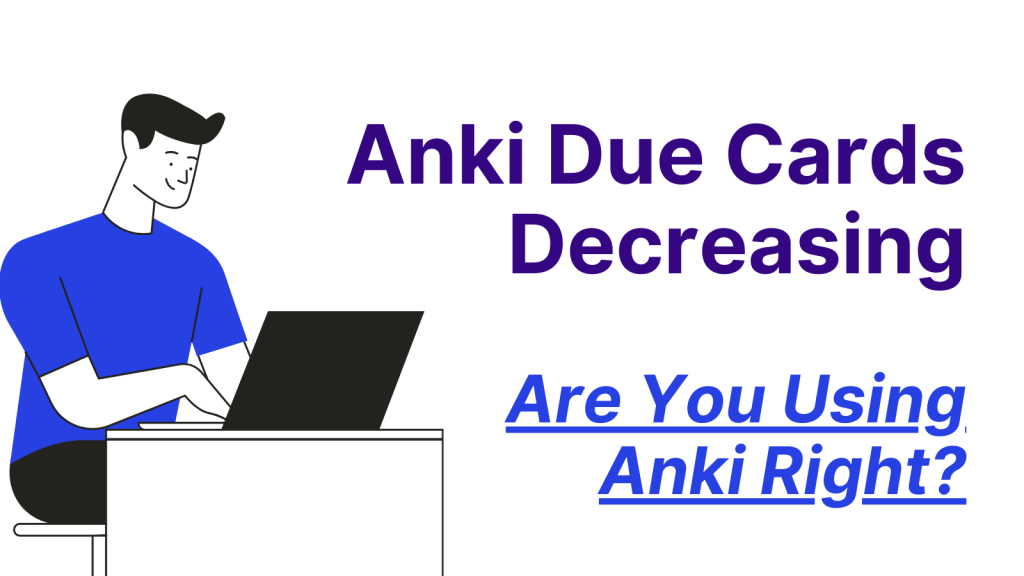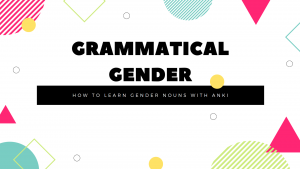Anki Due Cards Decreasing, Are You Using Anki Right?
Have you noticed that the number of due cards in your Anki deck keeps going down each day? It’s a common question among Anki users who are curious about this trend.
In this article, we’ll delve into the reasons behind the decreasing count of your due cards and help you understand how Anki tracks your progress. Let’s explore this topic to gain insights into your language learning journey with Anki.
Seeing the Decrease in Anki Due Cards: A Step-by-Step Demonstration
To help you better understand why the number of due cards in your Anki deck keeps going down, let’s take a look at some example screenshots that show this process in action.
Day 1: Initial Due Cards
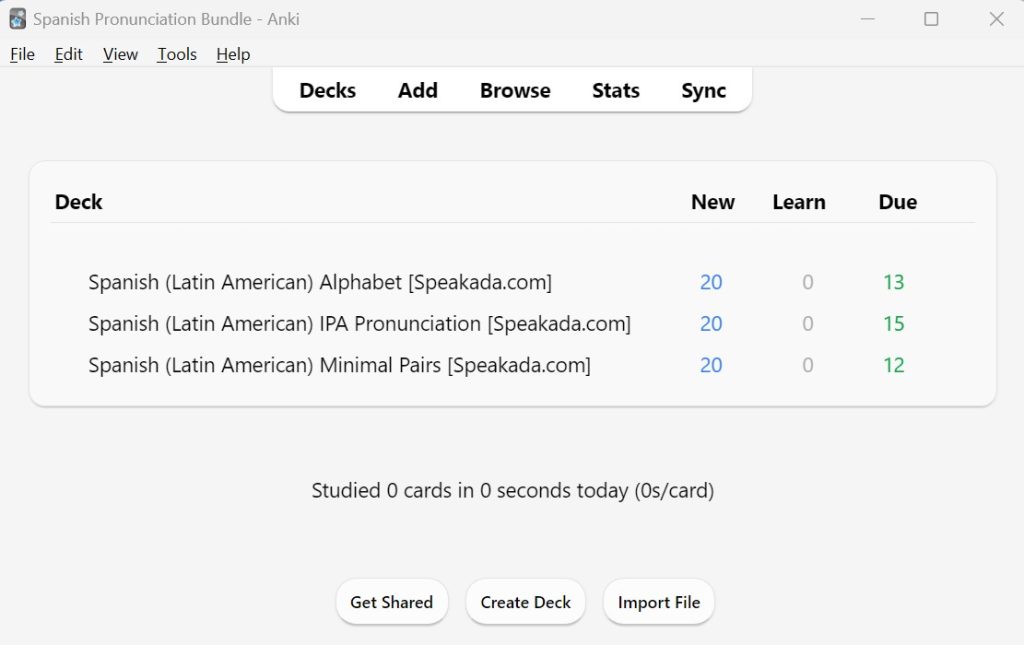
In the first example screenshot, taken on Day 1, you can see a larger number of due cards in your Anki deck. These are the flashcards that need to be reviewed based on the spaced repetition algorithm.
Day 5: Fewer Due Cards
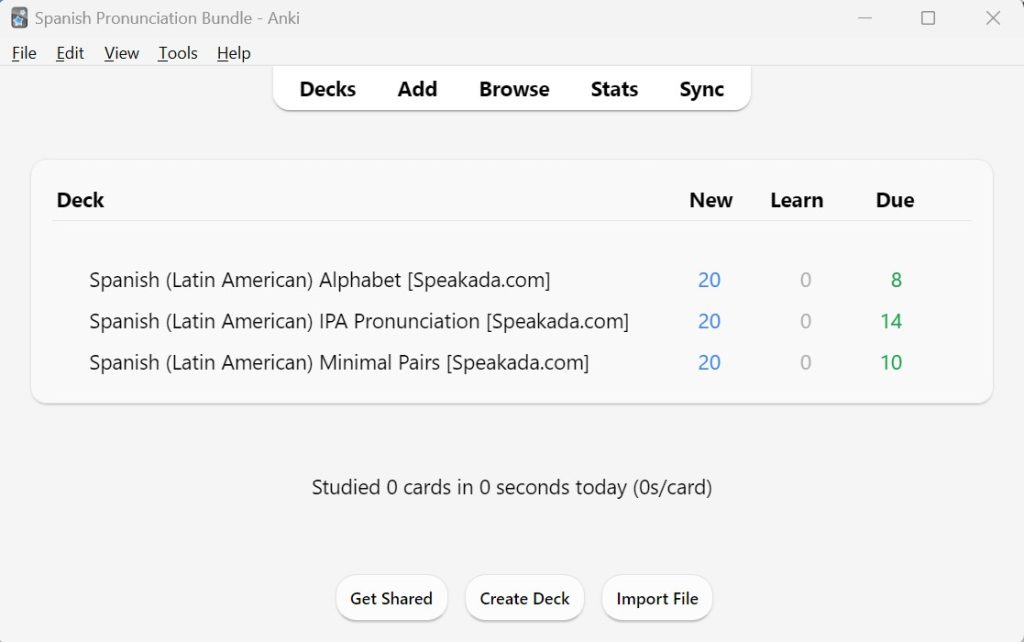
Moving to the second example screenshot, captured on Day 5, you’ll notice that the number of due cards has decreased. This is a positive sign indicating that you’ve been answering cards correctly. As a result, the intervals between reviews have become longer, allowing you more time to focus on new or challenging material.
Day 10: Further Decrease in Due Cards
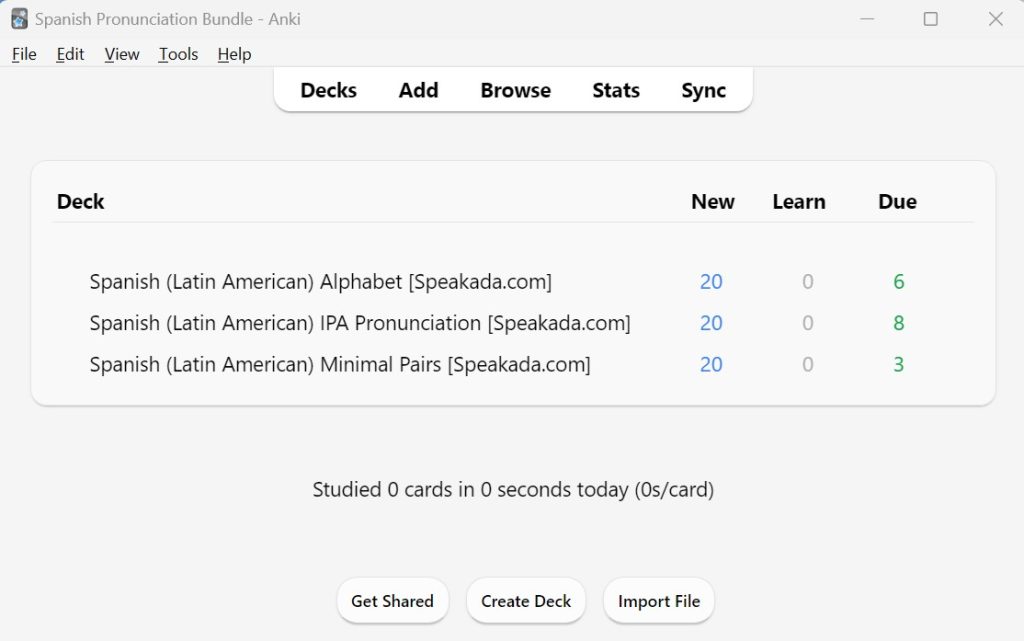
In the third example screenshot, taken on Day 10, you’ll see that the number of due cards has decreased even more. This continuous decrease shows your progress in remembering and retaining the information. It means that you’re doing well in your studies.
By looking at these screenshots, you can visually see how Anki’s algorithm optimizes your review schedule based on your performance. As you continue to answer cards correctly, the intervals between reviews get longer, resulting in fewer immediate reviews. Note that in your personal situation, the Due Cards in Anki may fluctuate up and down, and they won’t be exactly the same as the examples shown above.
Understanding the Anki Algorithm:
To understand why the number of due cards in your Anki deck is decreasing, it’s important to know how the Anki algorithm works. Anki uses a system called “spaced repetition”, which helps you review flashcards at the right time to improve memory retention.
How the Algorithm Works:
When you review a flashcard in Anki, the algorithm determines how well you remember it. Based on your performance, each card is assigned a difficulty level called an “ease factor,” which decides when you should review the card again.
If you answer a card correctly, the interval until the next review will be longer. If you struggle with a card, the interval will be shorter to help reinforce your memory.
The Decreasing Number of Anki Due Cards:
Now, let’s address the main question. If you notice that the number of due cards in your Anki deck is going down, it’s actually a good sign.
It means that you have been answering cards correctly. As a result, the intervals for those cards have been getting longer and longer. So, you’re doing well in remembering and retaining the information.
As you answer cards correctly and their intervals become longer, you’ll have fewer immediate reviews. This gives you more time to focus on new or challenging material.
Anki’s Graduating Interval:
Another reason for the decreasing due cards is the concept of the “graduating interval.” Anki sets a specific interval (usually a few days) as a threshold for a card to “graduate” from its initial learning phase.
Once a card graduates, it becomes part of the regular review schedule. As more cards graduate and have longer intervals, the number of due cards decreases.
This means that the number of due cards may decrease because many of your flashcards are moving from the initial learning phase, where you see cards more frequently, to the regular review phase, where you see cards less and less over time.
Balancing Your Review Load:
Anki’s algorithm aims to distribute your review workload evenly over time. It’s designed to optimize memory retention without overwhelming you.
As you continue to review and master flashcards, the algorithm adjusts the intervals to strike a balance between reinforcing what you’ve learned and introducing new material. This ensures a sustainable and effective learning experience.
Monitoring Progress and Making Adjustments:
While a decrease in due cards is generally a positive outcome, it’s important to keep track of your learning progress. If you consistently see a decrease in due cards, you might consider adding new material to your deck or adjusting the review settings.
Anki offers customization options like changing the number of new cards per day or adjusting interval modifiers. These adjustments can help you maintain a suitable workload and keep your learning experience on track.
Expanding Your Deck: Adding New Material for Continued Progress
If you find that the number of due cards in your Anki deck is low or even at zero, it’s essential to keep progressing. Adding new material to your deck is beneficial for several reasons:
- Avoiding Plateaus: Introducing new cards helps you overcome learning plateaus and keep challenging yourself.
- Reinforcing Concepts: New cards reinforce what you’ve already learned, enhancing your understanding and application of the language.
- Building Vocabulary: Adding new words and phrases expands your vocabulary, improving your fluency and communication skills.
- Enhancing Pronunciation and Listening: Audio-based cards in Anki can boost your pronunciation and listening abilities.
If creating new cards is difficult or time-consuming, consider using pre-made Anki flashcards from Speakada. Our ready-to-use cards for vocabulary, grammar, and pronunciation, will support your language learning journey and help you achieve your goals.
The Bottom Line: Embrace Your Progress When Anki Due Cards Go Down
If you’ve been wondering why the number of due cards in your Anki deck keeps going down, there’s usually nothing to worry about. It means that the algorithm is doing its job by optimizing your review schedule based on your performance.
Embrace this as a sign of your progress and growing mastery of the material. Just remember to keep an eye on your learning goals and feel free to make adjustments to your deck or settings to ensure a balanced and effective language learning journey with Anki.
Don’t forget that when your number of due cards is low or reaches zero, then consider adding more flashcards. Speakada can help you do that with our ready-made language learning flashcards for Anki.
